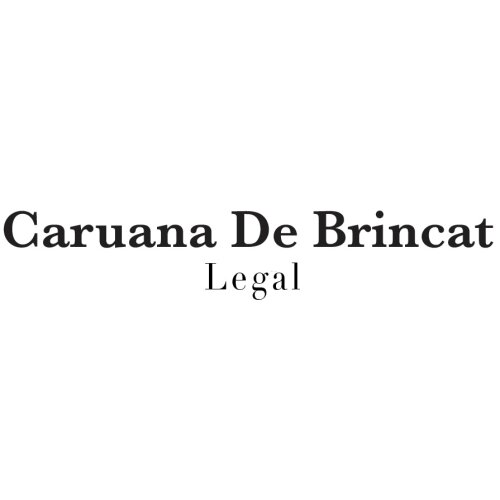Best Project Finance Lawyers in Malta
Share your needs with us, get contacted by law firms.
Free. Takes 2 min.
Or refine your search by selecting a city:
List of the best lawyers in Malta
About Project Finance Law in Malta
Project finance is a form of long-term financing that is especially common for large infrastructure and industrial projects. In Malta, project finance structures are often used for developments such as energy plants, transportation systems, real estate projects, and hospitality ventures. These arrangements typically involve financing that is secured by the project's assets and future cash flows. As an international finance hub within the European Union, Malta offers an attractive environment with a robust legal framework and business-friendly regulations designed to encourage investment and promote economic growth.
Why You May Need a Lawyer
If you are considering involvement in a project finance deal in Malta, there are several reasons why professional legal support is important:
- Drafting and negotiating complex financing agreements
- Ensuring compliance with local and European Union law
- Conducting due diligence on the project, local partners, and potential risks
- Structuring security packages that protect lenders and investors
- Obtaining required licenses, permits, and government approvals
- Addressing cross-border regulatory or tax issues
- Facilitating transfers, acquisitions, or divestments within the project lifecycle
- Troubleshooting disputes or enforcing rights related to the project
A qualified legal professional can guide you through the legal complexities and help safeguard your interests throughout each stage of your project.
Local Laws Overview
Project finance in Malta is influenced by a combination of local statutes and EU regulations. The key legal areas to consider include:
- Companies Act - Governs the incorporation of project companies, shareholder agreements, and the responsibilities of directors.
- Financial Collateral Arrangements Regulations - Provides the framework for securing financing through charges, pledges, and other collateral arrangements.
- Contract Law - Based on the Civil Code, ensures that commercial agreements are enforceable and clearly set out the rights and obligations of each party.
- Planning and Environmental Law - Covers permits, environmental impact assessments, and compliance with sustainable development policies.
- Public Procurement Regulations - Applies to government-backed projects, detailing the procedures for securing public contracts.
- Tax Laws - Sets out tax incentives, deductions, and structures that are beneficial for project finance arrangements.
- European Union Directives - Impact sectors such as energy, transportation, and banking, and must be taken into account for compliance on projects involving EU funding or cross-border elements.
It is vital to work with legal experts who understand the interplay between these topics and can provide tailored advice for your specific project.
Frequently Asked Questions
What is project finance and how does it work in Malta?
Project finance is a method where the project's own assets and revenue are used to secure and repay financing. In Malta, this often means setting up a special purpose vehicle (SPV) to isolate the project's financial risks and ensure transparency for all stakeholders.
Which types of projects are commonly financed this way in Malta?
Common sectors include infrastructure, renewable energy, tourism developments, real estate, utilities, and public-private partnerships. Projects that involve large capital expenditure and a predictable cash flow are most suitable.
Can foreign investors participate in project finance deals in Malta?
Yes, Malta’s open business environment encourages foreign investment. There are clear rules for foreign participation, and legal mechanisms ensure protection for international investors.
What security interests can lenders take in a Maltese project finance deal?
Lenders commonly secure their interests through mortgages over property or assets, pledges over shares, assignment of rights or receivables, and sometimes government guarantees in public sector projects.
What legal entities are usually used for project finance structures?
A special purpose vehicle (SPV), often a limited liability company, is commonly established to ring-fence project risks and liabilities.
Are there any government incentives for project finance or infrastructure investments?
Malta offers various incentives, especially for projects that align with government priorities such as renewable energy or tourism. These may include tax credits, grants, or access to EU funding programs.
What permits or regulatory approvals might be needed?
Depending on the nature of the project, approvals may be required from the Planning Authority, Environment and Resources Authority, Malta Financial Services Authority, or sector-specific regulators.
How long does it take to set up a project finance structure in Malta?
Timelines vary based on the complexity of the project, due diligence required, and regulatory approvals needed. On average, it can take several months from initial planning to financial close.
What are the common risks in Maltese project finance deals?
Risks may include construction delays, regulatory changes, changes in market demand, environmental liabilities, or funding challenges. Legal advice can help identify and allocate these risks appropriately.
How can disputes arising from project finance contracts be resolved?
Disputes can be resolved through negotiation, mediation, arbitration, or litigation in the Maltese courts. Many contracts specify arbitration as the preferred method, sometimes in Malta or in an international forum.
Additional Resources
Several organizations and bodies can provide additional information or support:
- Malta Financial Services Authority (MFSA) - The main regulator for financial services and project finance transactions
- Planning Authority - For permits and land use approvals
- Environment and Resources Authority - For environmental compliance and sustainability requirements
- Malta Chamber of Commerce, Enterprise and Industry - For investment opportunities and business support
- Government of Malta departments handling investment promotion, tax incentives, and public infrastructure projects
Consulting these resources along with your legal advisor can help you navigate the project finance landscape in Malta.
Next Steps
If you believe you need legal assistance for a project finance matter in Malta, consider the following actions:
- Identify and document your objectives, timeline, and initial project information
- Prepare a list of questions and concerns to discuss with a lawyer
- Research and contact a Maltese law firm or legal practitioner with expertise in project finance
- Request an initial consultation to understand your options and legal obligations
- Work closely with your lawyer throughout the project cycle to ensure compliance, reduce risk, and support successful outcomes
Professional legal advice is invaluable for protecting your investments and achieving your project goals in Malta’s dynamic business environment.
Lawzana helps you find the best lawyers and law firms in Malta through a curated and pre-screened list of qualified legal professionals. Our platform offers rankings and detailed profiles of attorneys and law firms, allowing you to compare based on practice areas, including Project Finance, experience, and client feedback.
Each profile includes a description of the firm's areas of practice, client reviews, team members and partners, year of establishment, spoken languages, office locations, contact information, social media presence, and any published articles or resources. Most firms on our platform speak English and are experienced in both local and international legal matters.
Get a quote from top-rated law firms in Malta — quickly, securely, and without unnecessary hassle.
Disclaimer:
The information provided on this page is for general informational purposes only and does not constitute legal advice. While we strive to ensure the accuracy and relevance of the content, legal information may change over time, and interpretations of the law can vary. You should always consult with a qualified legal professional for advice specific to your situation.
We disclaim all liability for actions taken or not taken based on the content of this page. If you believe any information is incorrect or outdated, please contact us, and we will review and update it where appropriate.
Browse project finance law firms by city in Malta
Refine your search by selecting a city.















